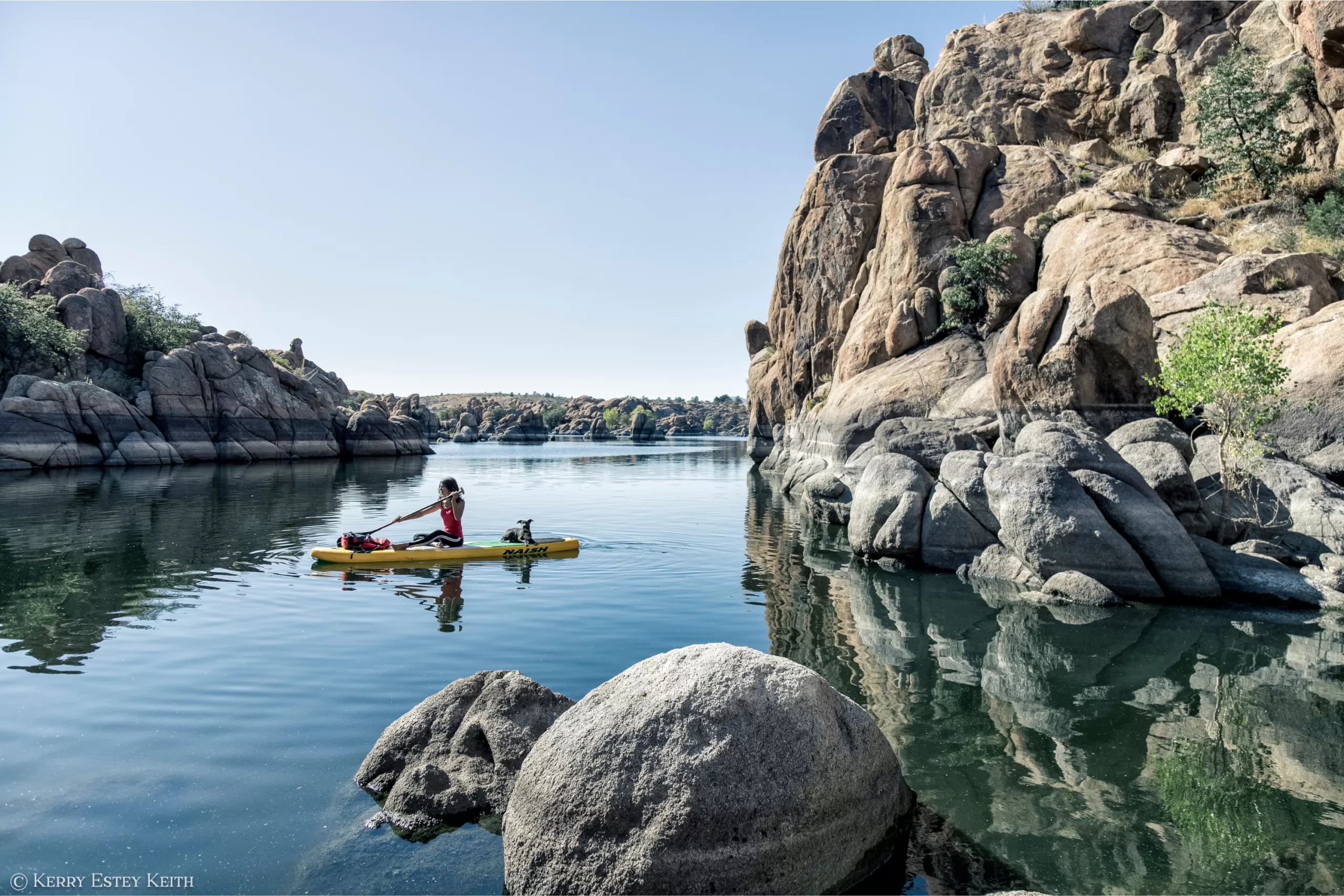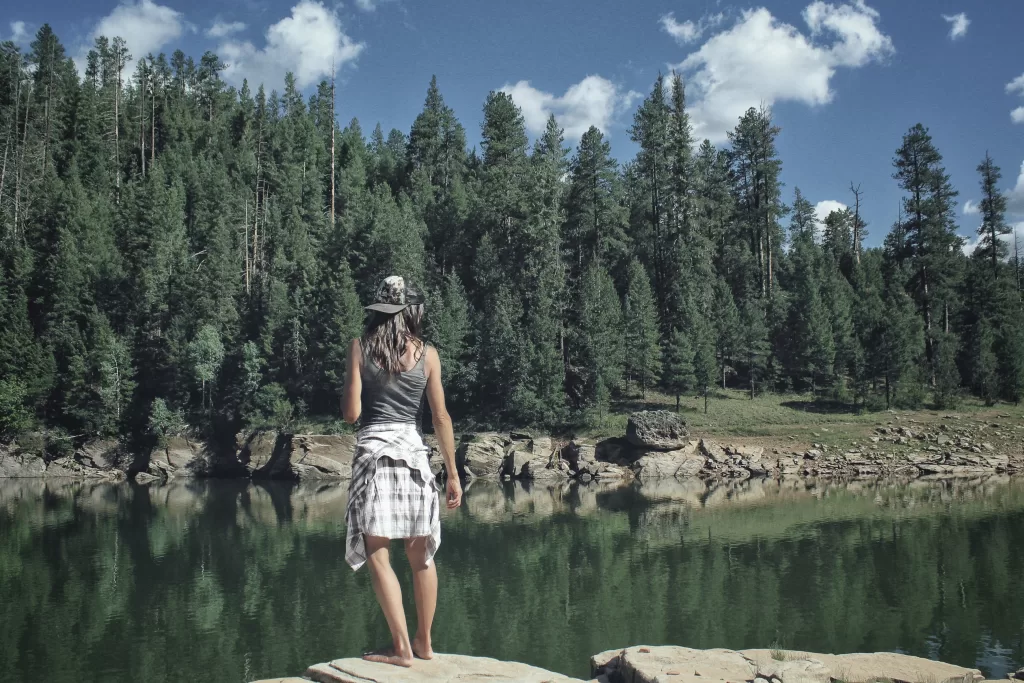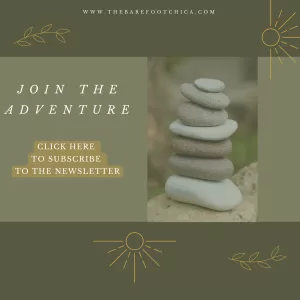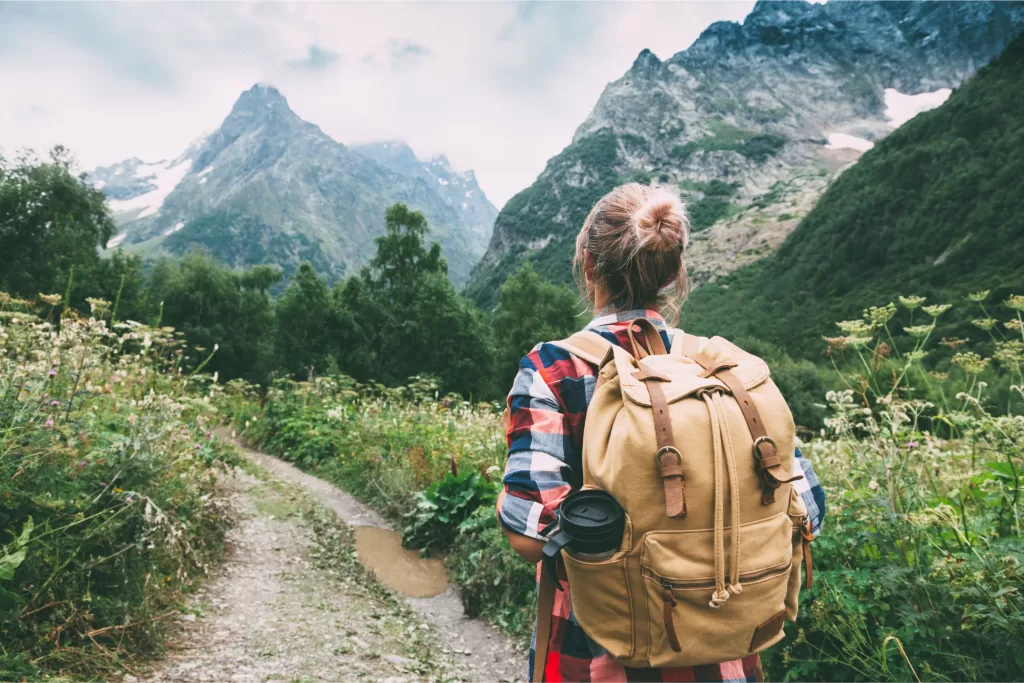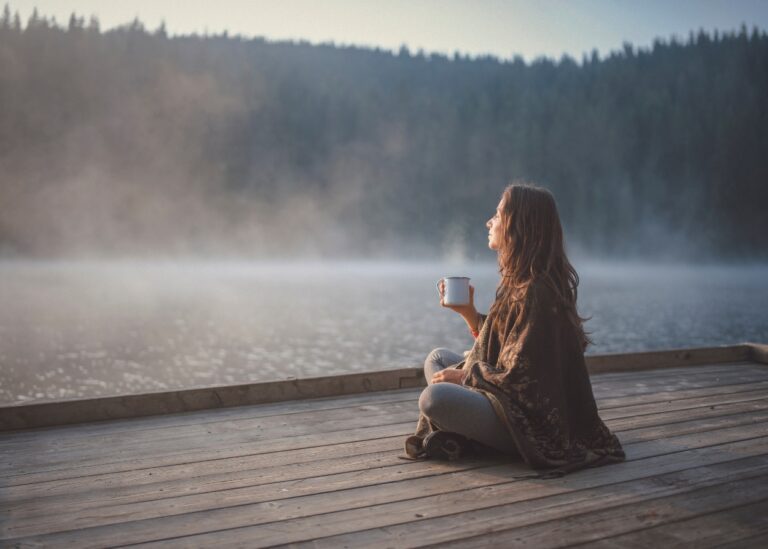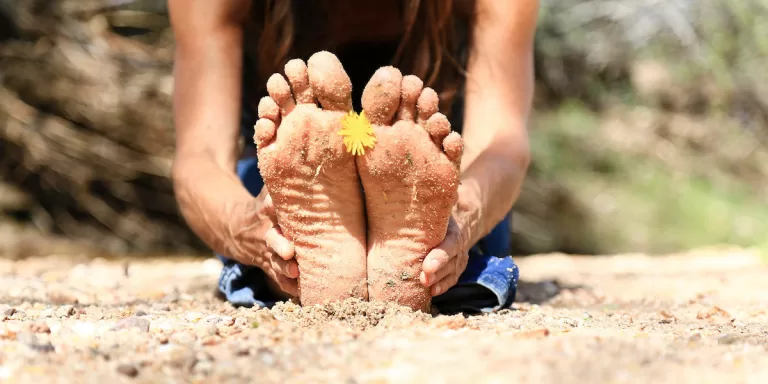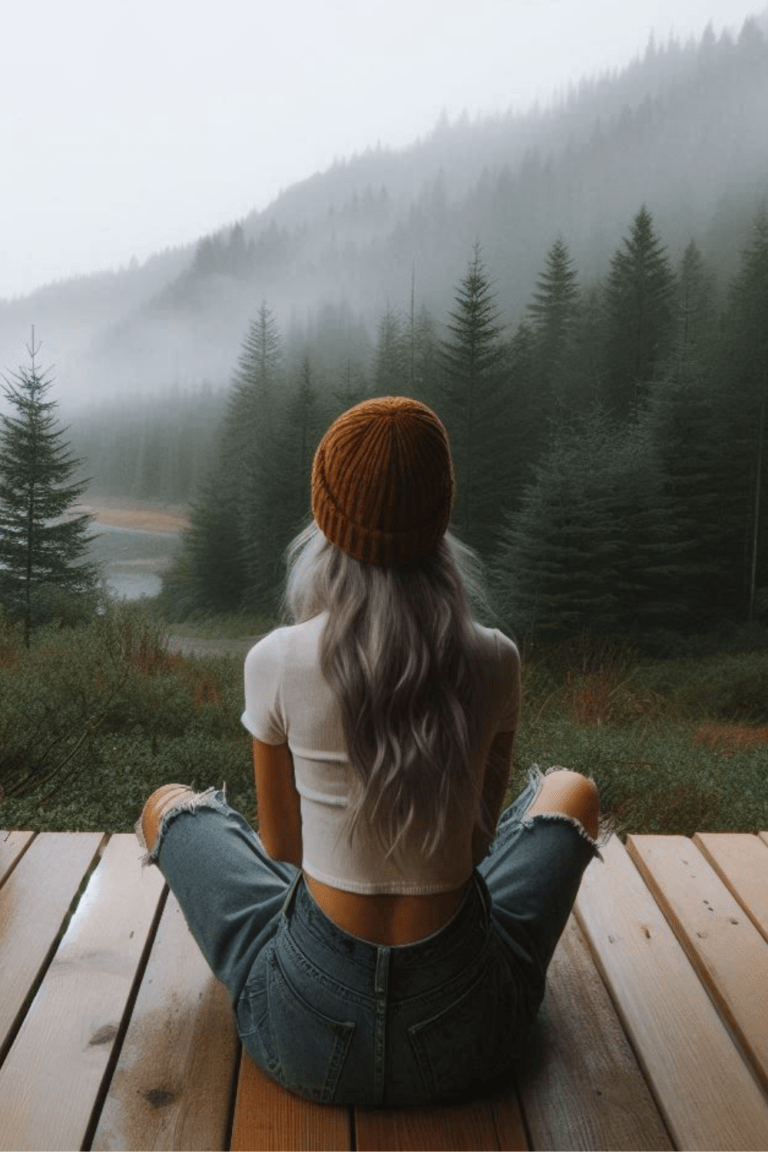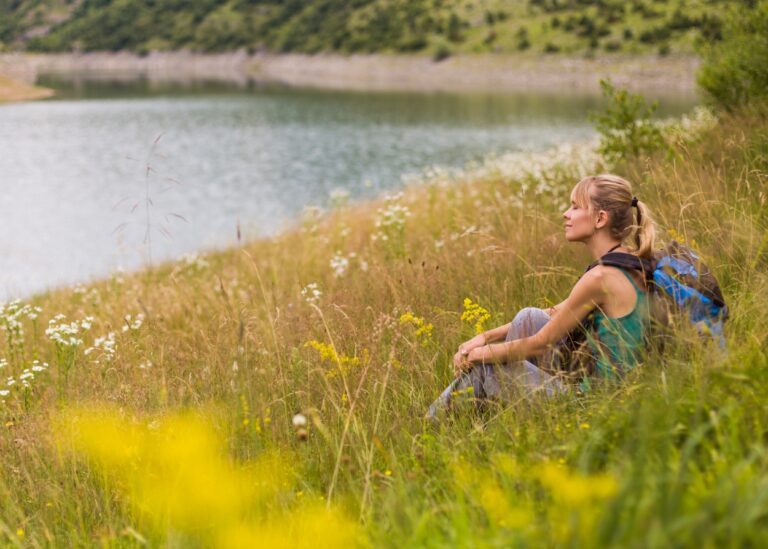Why Do Introverts and HSPs Crave Solitude and Wilderness?
Introverts and highly sensitive people (HSPs) often find solace and rejuvenation in solitude and nature. While these two groups may overlap, their needs and reasons for seeking out quiet natural spaces can vary. This article explores the unique qualities of introverts and HSPs, why they are drawn to solitude and nature, and the benefits they gain from these experiences. We will also delve into the broader necessity of nature for human well-being.
- Why Do Introverts and HSPs Crave Solitude and Wilderness?
- Understanding Introverts and HSPs
- The Need for Solitude
- Why Nature?
- The Benefits of Solitude and Nature
- The Science Behind Nature’s Healing Power
- Why We All Need Nature
- Practical Tips for Introverts and HSPs
- Creating a Personal Nature Sanctuary
- Connecting with Nature Through Hobbies
- Wrapping it up: Embracing the Healing Power of Nature
- Reading List
Understanding Introverts and HSPs
Who Are Introverts?
Introverts are individuals who tend to be more reserved and inward-focused. They often feel drained by social interactions and need alone time to recharge. Unlike extroverts, who gain energy from being around others, introverts find energy in solitude. They thrive in environments where they can reflect, think deeply, and engage in solo activities.
Personal Story: Sarah’s Escape to the Mountains
Sarah, a graphic designer, always felt exhausted after attending social gatherings. She found her peace in weekend trips to the mountains. Surrounded by towering pines and the gentle sound of a nearby stream, Sarah could finally unwind. She would sketch, read, and simply breathe in the fresh air, feeling her energy slowly return.
What Defines Highly Sensitive People?
HSPs are individuals with heightened sensitivity to stimuli, both external and internal. This trait, identified by psychologist Dr. Elaine Aron, means that HSPs process sensory information more deeply. They can be easily overwhelmed by bright lights, loud noises, and strong smells, and they are more attuned to subtleties in their environment.
Personal Story: John’s Ocean Retreat
John, a software developer, often felt overwhelmed by the constant noise and hustle of city life. As an HSP, he found solace in early morning walks along the beach. The rhythmic sound of waves crashing and the feeling of sand beneath his feet provided a much-needed sensory break, allowing him to recharge and face the day with renewed calm.
The Need for Solitude
Introverts and Solitude
For introverts, solitude is not just a preference but a necessity. Social interactions can be exhausting, leading to what is often referred to as an “introvert hangover.” Time alone allows introverts to process their thoughts, reflect, and regain their energy. This quiet time is essential for their mental and emotional well-being.
Practical Tips for Finding Solitude
- Early Mornings: Start your day early to enjoy the quiet before the world wakes up.
- Nature Retreats: Plan regular getaways to natural settings where you can be alone.
- Create a Sanctuary: Designate a peaceful spot at home where you can retreat when needed.
HSPs and Solitude
HSPs, with their heightened sensitivity, also require solitude to decompress. The constant bombardment of stimuli in everyday life can be overwhelming. Solitude provides a break from the sensory overload, allowing HSPs to relax and reset. In these quiet moments, HSPs can process their experiences and emotions without the distraction of external stimuli.
Practical Tips for HSPs
- Sensory Breaks: Incorporate short breaks throughout your day to minimize sensory overload.
- Mindfulness Practices: Engage in mindfulness or meditation to center yourself.
- Nature Walks: Regular walks in nature can help soothe and balance your senses.
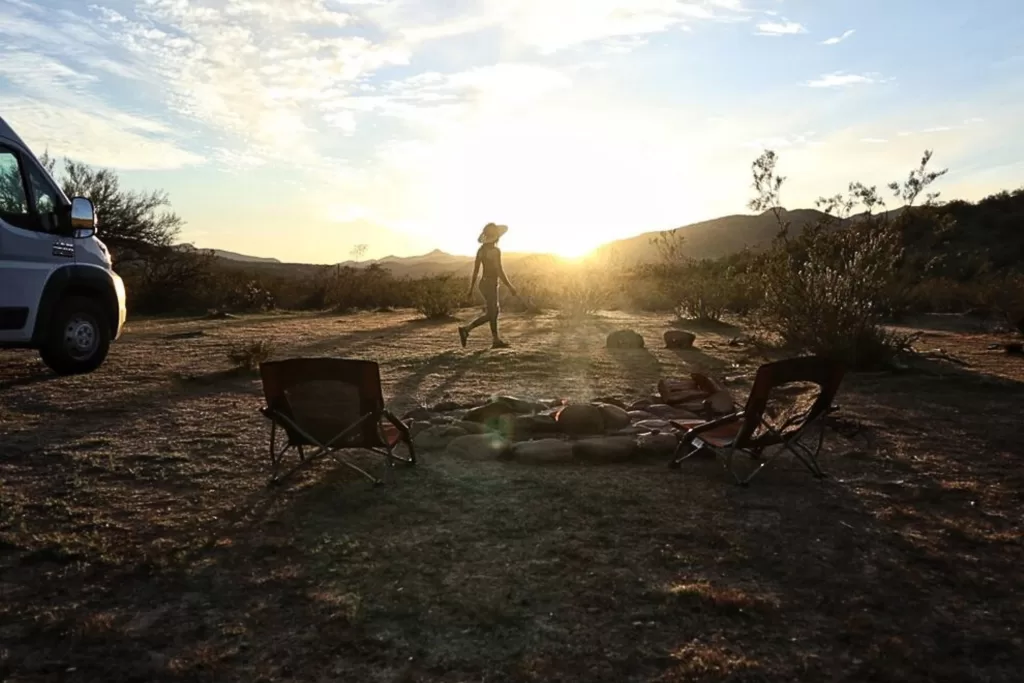
Why Nature?
The Calming Effect of Nature
Nature has a universally calming effect on people, but for introverts and HSPs, it can be particularly therapeutic. The natural world provides a serene environment where they can escape the overstimulation of modern life. The gentle sounds of rustling leaves, birdsong, and flowing water create a soothing backdrop that helps to quiet the mind.
Science Spotlight: Forest Bathing
“Shinrin-yoku,” or forest bathing, is a Japanese practice that involves immersing oneself in nature. Studies have shown it reduces stress hormones, lowers blood pressure, and boosts mood. Introverts and HSPs can benefit immensely from this practice, finding deep relaxation and peace.
Nature as a Refuge
For introverts and HSPs, nature serves as a refuge from the demands of social interactions and urban life. In natural settings, they can find a sense of peace and solitude that is difficult to achieve elsewhere. The simplicity and beauty of nature offer a welcome contrast to the complexity and noise of everyday life.
Real-Life Example: Weekend Hiking Clubs
If you’re not keen on solo hiking, joining a hiking club or small group focusing on less crowded trails can provide the perfect balance of solitude and community. Introverts and HSPs can enjoy the quiet of nature while having the option to socialize if they choose.
The Benefits of Solitude and Nature
Mental Health Benefits
Solitude and nature offer numerous mental health benefits for introverts and HSPs. Time alone in nature can reduce stress, anxiety, and depression. The tranquility of natural settings allows for introspection and mindfulness, promoting a sense of calm and well-being.

Expanded Insight: The Role of Mindfulness
Mindfulness in nature involves being fully present and aware of your surroundings. Practices like deep breathing, listening to the sounds of nature, and observing the beauty around you can enhance the mental health benefits of being in nature.
Emotional Rejuvenation
Spending time in nature provides emotional rejuvenation for introverts and HSPs. The peaceful environment allows them to process their emotions without the interference of external stimuli. This can lead to greater emotional clarity and stability.
Activity Idea: Nature Journaling
Keeping a nature journal can be a therapeutic way to express and process emotions. Writing about your experiences, observations, and feelings while in nature can deepen your connection to the environment and enhance emotional healing.
Enhanced Creativity
Both introverts and HSPs often find that solitude and nature enhance their creativity. The quiet and beauty of natural settings can inspire new ideas and perspectives. Without the distractions of everyday life, they can focus more deeply on their creative pursuits.
Creative Inspiration: Artistic Retreats
Consider attending an artistic retreat in a natural setting. These retreats offer dedicated time and space for creative expression, surrounded by the beauty of nature. Whether painting, writing, or crafting, the environment can spark new creative insights.
The Science Behind Nature’s Healing Power
Biophilia Hypothesis
The biophilia hypothesis, proposed by biologist E.O. Wilson, suggests that humans have an innate affinity for nature. This connection to the natural world is deeply rooted in our evolutionary history. For introverts and HSPs, this connection can be particularly strong, providing a sense of belonging and comfort.

Nature and Stress Reduction
Numerous studies have shown that spending time in nature reduces stress levels. Exposure to natural environments lowers cortisol, the body’s stress hormone, and promotes relaxation. For introverts and HSPs, who are more prone to stress, this can be incredibly beneficial.
Scientific Study: Cortisol Levels and Nature Exposure
A study by Stanford University found that participants who walked in natural settings showed lower levels of rumination and decreased activity in the subgenual prefrontal cortex, an area of the brain linked to mental illness. This highlights the profound impact nature can have on reducing stress and improving mental health.
Nature’s Impact on Brain Function
Research has also shown that nature positively impacts brain function. Time spent in natural settings can improve cognitive function, enhance attention, and boost mood. For introverts and HSPs, these cognitive and emotional benefits can make a significant difference in their overall well-being.
Research Highlight: Attention Restoration Theory
Attention Restoration Theory (ART) suggests that natural environments help restore directed attention, which is the ability to focus on tasks. Nature provides a break from the intense focus required in daily life, allowing the brain to recover and function more efficiently.
Why We All Need Nature
Universal Benefits
While introverts and HSPs may feel a particularly strong draw to nature, the benefits of spending time in natural settings are universal. Nature provides a space for everyone to unwind, reflect, and reconnect with themselves. It offers a respite from the constant stimulation and demands of modern life.
Broader Perspective: Nature and Public Health
Urban green spaces and public parks play a crucial role in community health. They provide accessible areas for exercise, relaxation, and social interaction, contributing to overall public well-being.
Nature and Community
Spending time in nature can also foster a sense of community and connection. Shared experiences in natural settings can bring people together, creating bonds and strengthening relationships. For introverts and HSPs, this can be a gentle way to connect with others without the pressure of more conventional social interactions.
Community Building: Group Nature Activities
Participating in group activities like community gardening, hiking clubs, or nature workshops can create meaningful connections. These activities offer the opportunity to bond over shared interests in a relaxed, natural environment.
Preserving Natural Spaces
Given the profound benefits of nature, it is essential to preserve and protect natural spaces. Ensuring that these environments remain accessible and pristine is crucial for the well-being of all individuals, particularly those who rely on nature for solace and rejuvenation.
Call to Action: Environmental Stewardship
Support local conservation efforts and participate in initiatives to protect natural habitats. Advocacy for green spaces in urban planning and responsible outdoor practices can help ensure that future generations can enjoy the same benefits of nature.
Practical Tips for Introverts and HSPs
Finding Solitude in Nature
For introverts and HSPs looking to find solitude in nature, consider visiting less crowded parks, forests, or beaches. Early morning or weekday visits can provide quieter experiences. Look for hidden gems in your area that may not be as popular but offer the peace and quiet you seek.
Creating a Personal Nature Sanctuary
Bringing Nature Indoors
If access to nature is limited, creating a personal sanctuary at home can provide similar benefits. Surround yourself with elements of nature, such as plants, natural light, and calming sounds, to create a serene environment that promotes relaxation and well-being.
Indoor Gardening Tips
- Houseplants: Choose low-maintenance plants like succulents, snake plants, or peace lilies to bring greenery indoors.
- Natural Light: Position your plants near windows to maximize natural light and create a bright, inviting space.
- Water Features: Incorporate small water features, such as tabletop fountains, to introduce the soothing sound of flowing water.
Nature Sounds and Scents
Enhancing your indoor environment with nature sounds and scents can create a calming atmosphere reminiscent of the outdoors. Consider using essential oils, sound machines, or apps that mimic natural sounds like rain, ocean waves, or birdsong. I listen to bird sounds and gentle rain every morning while I meditate.
Aromatherapy Ideas
- Essential Oils: Use essential oils like lavender, eucalyptus, or pine to bring the scents of nature into your home.
- Diffusers: Invest in a quality diffuser to disperse essential oils throughout your space, creating a soothing and refreshing ambiance.
Connecting with Nature Through Hobbies
Outdoor Activities for Introverts and HSPs
Engaging in outdoor hobbies that align with your interests can provide meaningful ways to connect with nature. Activities such as Backpacking, hiking, birdwatching, or photography allow you to immerse yourself in natural settings while enjoying solitary pursuits.
Hobby Inspiration
- Hiking: Explore local trails and parks, taking time to appreciate the beauty and tranquility of your surroundings.
- Birdwatching: Observe and document local bird species, enhancing your connection to the natural world.
- Nature Photography: Capture the stunning landscapes and wildlife you encounter, creating lasting memories of your outdoor adventures.
Creative Nature Projects
For introverts and HSPs, creative projects that incorporate elements of nature can be deeply fulfilling. Consider activities like nature journaling, crafting with natural materials, or painting landscapes to express your creativity while staying connected to the natural world.
Craft Ideas
- Nature Journaling: Record your observations, thoughts, and feelings about your time spent in nature, adding sketches or pressed flowers to enhance your entries.
- Natural Crafts: Create art using materials like leaves, stones, or driftwood, bringing a piece of the outdoors into your home.
- Landscape Painting: Set up an easel in a quiet outdoor spot and paint the scenery around you, capturing the essence of your surroundings.
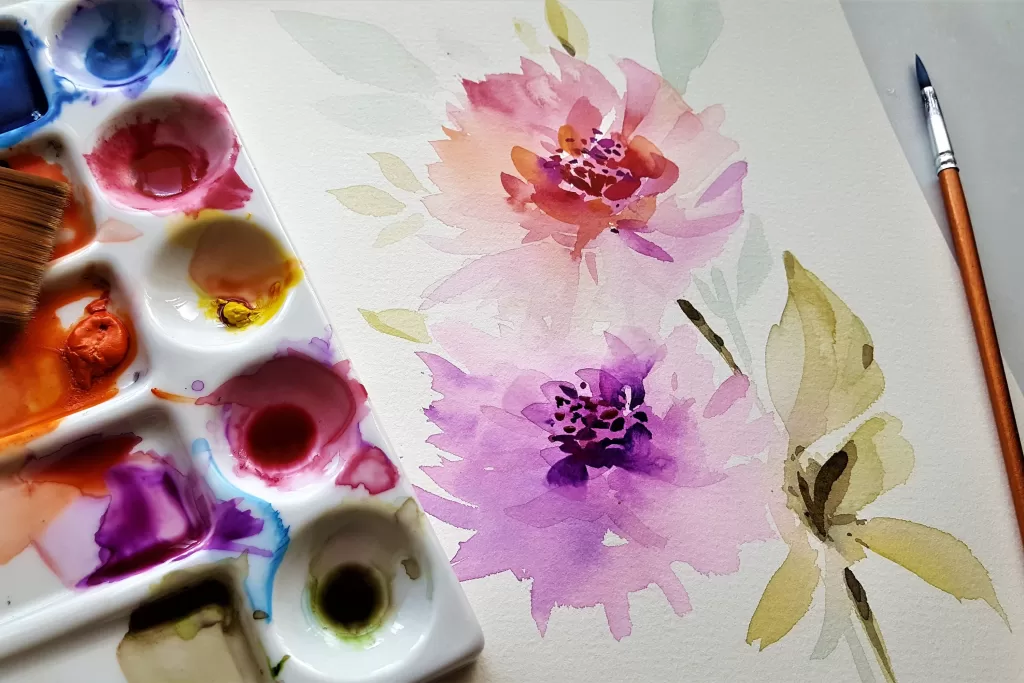
Wrapping it up: Embracing the Healing Power of Nature
Introverts and highly sensitive people have a unique and profound connection to nature. By seeking solitude in natural settings, they can reduce stress, boost creativity, and find emotional rejuvenation. The benefits of nature are not limited to these groups, however; everyone can experience the healing power of the great outdoors.
Whether you are an introvert, an HSP, or simply someone looking for a way to escape the demands of modern life, nature offers a sanctuary of peace and tranquility. By incorporating elements of nature into your daily routine, whether through outdoor activities, creating a personal sanctuary, or engaging in creative projects, you can harness the therapeutic benefits of the natural world.
So, take a step outside, breathe in the fresh air, and let nature work its magic. Embrace the beauty and serenity that nature provides, and discover the profound impact it can have on your mental and emotional well-being. Nature’s embrace is waiting—find your refuge and thrive.
Reading List
Quiet: The Power of Introverts in a World That Can’t Stop Talking by Susan Cain
- Explores the strengths and contributions of introverts and how they can thrive in a world that values extroversion.
The Highly Sensitive Person: How to Thrive When the World Overwhelms You by Elaine N. Aron
- Offers insights and advice for highly sensitive people on how to navigate and thrive in a stimulating world.
Nature Fix: Why Nature Makes Us Happier, Healthier, and More Creative by Florence Williams
- Examines the science behind how nature positively impacts our mental and physical health.
The Introvert Advantage: How to Thrive in an Extrovert World by Marti Olsen Laney
- Provides practical tips and strategies for introverts to maximize their strengths and find balance.
Last Child in the Woods: Saving Our Children from Nature-Deficit Disorder by Richard Louv
- Discusses the importance of nature for children and the impact of disconnecting from the natural world.
Wild: From Lost to Found on the Pacific Crest Trail by Cheryl Strayed
- A memoir about finding solace and healing through a solo long-distance hike in nature.
The Nature Principle: Reconnecting with Life in a Virtual Age by Richard Louv
- Explores the benefits of reconnecting with nature in our increasingly digital world.
Introvert Power: Why Your Inner Life Is Your Hidden Strength by Laurie Helgoe
- Highlights the power and potential of introverts and how to harness it in various aspects of life.
The Forest Unseen: A Year’s Watch in Nature by David George Haskell
- Offers a deep, meditative exploration of nature through the lens of a small forest area observed over the course of a year.
The Joy of Missing Out: Live More by Doing Less by Tanya Dalton
- Focuses on the importance of intentional living and finding joy in solitude and simplicity.
Finding Quiet: My Story of Overcoming Anxiety and the Practices that Brought Peace by J.P. Moreland
- Shares personal experiences and practical advice for overcoming anxiety through faith, philosophy, and psychology.
The Art of Stillness: Adventures in Going Nowhere by Pico Iyer
- Discusses the importance of finding stillness and solitude in our fast-paced world.
- Combines indigenous wisdom and scientific knowledge to explore our relationship with the natural world.
- Reveals the secret life of trees and their interconnectedness, fostering a deeper appreciation for nature.
Windswept: Walking the Paths of Trailblazing Women by Annabel Abbs
- Chronicles the journeys of pioneering women who found liberation and inspiration in walking through nature, blending memoir and biography to highlight the transformative power of long walks in the wilderness.

